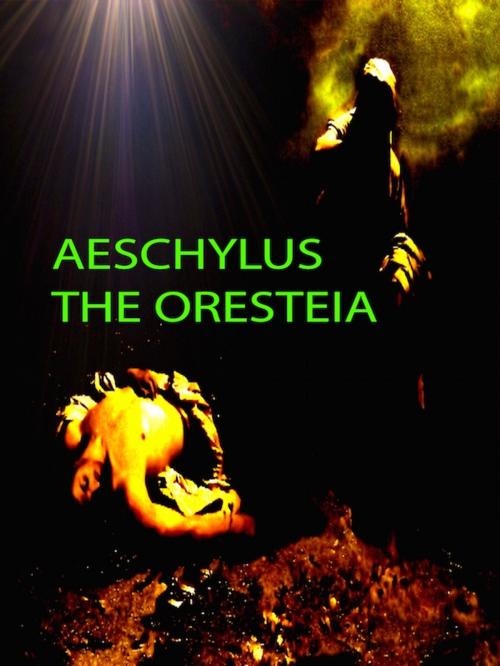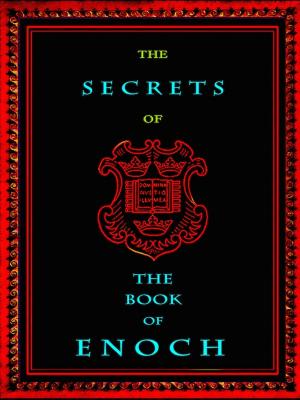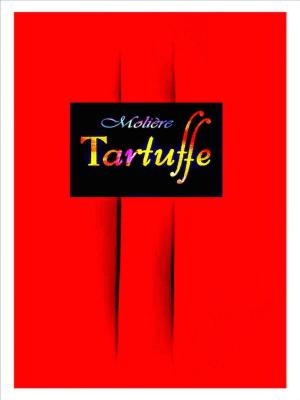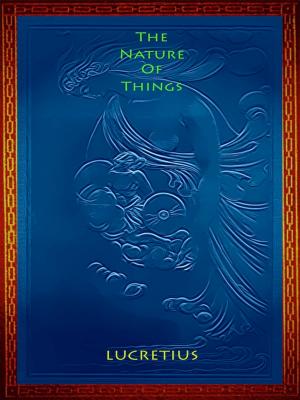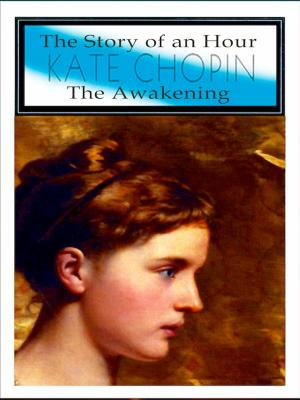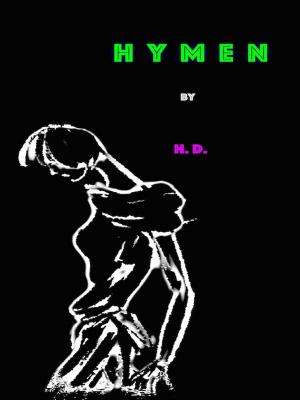| Author: | Aeschylus | ISBN: | 1230001162066 |
| Publisher: | Editions Artisan Devereaux LLC | Publication: | June 5, 2016 |
| Imprint: | Language: | English |
| Author: | Aeschylus |
| ISBN: | 1230001162066 |
| Publisher: | Editions Artisan Devereaux LLC |
| Publication: | June 5, 2016 |
| Imprint: | |
| Language: | English |
The only trilogy in Greek drama that survives from antiquity, Aeschylus' The Oresteia described the bloody chain of murder and revenge within the royal family of Argos.
“At home there tarries like a lurking snake,
Biding its time, a wrath unreconciled…”
In Agamemnon, (first performed in Athens, Greece, in 458 BC), a king's decision to sacrifice his own daughter and turn the tide of war inflicts everlasting damage to his family, and culminates in a terrible act of retribution.
Ten years have passed since Agamemnon left Argos to lead the Greeks in war.
A chorus of elders recalls an oracle's prophecy: that Agamemnon would sacrifice his and Clytemnestra’s daughter, Iphigenia to the goddess Artemis in order to insure favorable winds for his fleet on its journey to Troy.
For this act there would be grave retribution.
When the time came for his ships to set sail, Artemis withheld the winds because Agamemnon had killed a stag sacred to her.
To unleash the winds, the goddess decreed that Agamemnon had to pay for his offense by sacrificing his beloved daughter, Iphigenia.
Agamemnon did so.
So enraged was Clytemnestra that her rage only grew during the ten years Agamemnon was at war.
Now the queen and her lover are plotting against Agamemnon when he returns home from the Trojan wars…
“Stroke for bloody stroke must be paid.
The one who acts must suffer…”
The Libation-Bearers is the second play in the Oresteia trilogy, and recounts the aftermath of Clytemnestra's murder of king Agamemnon.
Orestes has been living in exile and has come back to Argos in secret to avenge his father's death.
"You wish to be called righteous rather than act right…"
Towering over the rest of Greek tragedy, The Eumenides is one of the most enduring dramas ever written.
After the murder of his mother, Orestes wanders as an outcast as the Furies relentlessly torment him for taking his mother’s life.
He seeks refuge in the sanctuary of Apollo at Delphi.
Ultimately he arrives at Athens and throws himself on the mercy of the goddess Athene.
The Furies threaten to take revenge on Athens, but Athene pacifies them and soon the Furies are transformed into benevolent spirits.
Their name is changed to the Eumenides, ("the kindly ones,") to symbolize their new character.
AESCHYLUS (525-456 BC) is one of three ancient Greek tragedians (along with Sophocles and Euripides) whose plays have survived down through the centuries. Although he is said to have written over seventy plays, only a few have survived.
He was the playwright who first made Athenian tragedy one of the world's great art forms, although in his epitaph he preferred he should be remembered as one of those who fought the Persians at Marathon.
His most famous plays include Seven Against Thebes, The Suppliants, The Oresteia, Agamemnon, The Libation Bearers, The Eumenides, and Prometheus Bound.
The only trilogy in Greek drama that survives from antiquity, Aeschylus' The Oresteia described the bloody chain of murder and revenge within the royal family of Argos.
“At home there tarries like a lurking snake,
Biding its time, a wrath unreconciled…”
In Agamemnon, (first performed in Athens, Greece, in 458 BC), a king's decision to sacrifice his own daughter and turn the tide of war inflicts everlasting damage to his family, and culminates in a terrible act of retribution.
Ten years have passed since Agamemnon left Argos to lead the Greeks in war.
A chorus of elders recalls an oracle's prophecy: that Agamemnon would sacrifice his and Clytemnestra’s daughter, Iphigenia to the goddess Artemis in order to insure favorable winds for his fleet on its journey to Troy.
For this act there would be grave retribution.
When the time came for his ships to set sail, Artemis withheld the winds because Agamemnon had killed a stag sacred to her.
To unleash the winds, the goddess decreed that Agamemnon had to pay for his offense by sacrificing his beloved daughter, Iphigenia.
Agamemnon did so.
So enraged was Clytemnestra that her rage only grew during the ten years Agamemnon was at war.
Now the queen and her lover are plotting against Agamemnon when he returns home from the Trojan wars…
“Stroke for bloody stroke must be paid.
The one who acts must suffer…”
The Libation-Bearers is the second play in the Oresteia trilogy, and recounts the aftermath of Clytemnestra's murder of king Agamemnon.
Orestes has been living in exile and has come back to Argos in secret to avenge his father's death.
"You wish to be called righteous rather than act right…"
Towering over the rest of Greek tragedy, The Eumenides is one of the most enduring dramas ever written.
After the murder of his mother, Orestes wanders as an outcast as the Furies relentlessly torment him for taking his mother’s life.
He seeks refuge in the sanctuary of Apollo at Delphi.
Ultimately he arrives at Athens and throws himself on the mercy of the goddess Athene.
The Furies threaten to take revenge on Athens, but Athene pacifies them and soon the Furies are transformed into benevolent spirits.
Their name is changed to the Eumenides, ("the kindly ones,") to symbolize their new character.
AESCHYLUS (525-456 BC) is one of three ancient Greek tragedians (along with Sophocles and Euripides) whose plays have survived down through the centuries. Although he is said to have written over seventy plays, only a few have survived.
He was the playwright who first made Athenian tragedy one of the world's great art forms, although in his epitaph he preferred he should be remembered as one of those who fought the Persians at Marathon.
His most famous plays include Seven Against Thebes, The Suppliants, The Oresteia, Agamemnon, The Libation Bearers, The Eumenides, and Prometheus Bound.
